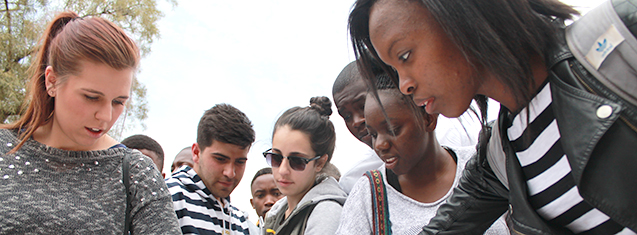
Students take collective action against the plight of suicide
Many students are battling depression, and have contemplated suicide. Some have lost the battle and, in turn, their lives. Suicide is a difficult topic to discuss and, even more challenging, to face its repercussions. The Leadership for Change (F1) 2014/2015 cohort took the initiative to change this through the TooSoon campaign.
A day after International Suicide Awareness Day, on Friday 11 September 2015, students marched in solidarity from Thakaneng Bridge to the Red Square on the University of the Free State’s Bloemfontein Campus.
The TooSoon team has forged links with the student community, Student Affairs, Student Counselling and Development, as well as the Health and Wellness offices to break the silence about the topic of suicide.
Every student has the potential to live a long and purposeful life. So, when someone ends his or her life, it is always too soon: this is the message the team is communicating. Awareness-raising was kick-started in August, with information sessions held at residences across the campus and the Bridge. The campus was plastered with posters offering emergency contact details for those in need of counselling, and culminated in the silent march.
At the end of the march, those who had already lost the battle were remembered through song and poetry. Students then pledged their support by painting their fingers with yellow paint and printing them on a canvas,,symbolising their solidarity in the fight against suicide.